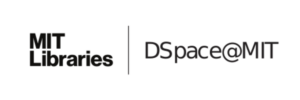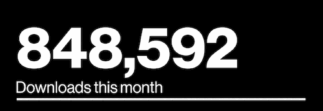In celebration of International Open Access Week, we’re running a series of stories about open scholarship that prioritizes community-run publishing and infrastructure. Today’s piece is written by Sadie Roosa, collections strategist for repository services in the Libraries.
 DSpace, the open source and open access digital repository co-created by MIT developers in 2002, is an integral part of MIT’s efforts to make its researchers’ own scholarship freely and openly available to anyone in the world.
DSpace, the open source and open access digital repository co-created by MIT developers in 2002, is an integral part of MIT’s efforts to make its researchers’ own scholarship freely and openly available to anyone in the world.
On May 9, 2002, staff from MIT’s Sociotechnical Systems Research Center deposited DSpace@MIT’s very first item, Global sourcing in the automotive supply chain:The case of Fiat Auto, part of the International Motor Vehicle Program collection. There are now more than 137,000 articles, working papers, reports, books, and theses in the repository, and more than 600 collections.
The two largest DSpace communities are campus-wide and accept works from researchers across the Institute. The MIT Theses community is the largest with over 60,000 items, and is heavily used with over 10 million item downloads. The Open Access Articles collection, which includes scholarly journal articles and conference papers, many of which deposited under MIT’s open access policies, is also very large (over 51,000 items) and is the most used collection with over 24 million item downloads.
Because articles in the OA collection have been published in journals, often behind a paywall, we can see benefits of having open access versions in DSpace by comparing downloads from our open repository with those on a publisher’s website.
For example, one of the most downloaded articles in the OA collection is The thermophysical properties of seawater: A review of existing correlations and data: There have been 25,832 downloads from DSpace. The publisher’s site shows 692 full text views/downloads of the paywalled version. The article, A direct path to dependable software has been downloaded 24,483 downloads from DSpace but only 3,738 from the publisher.
In addition to these campus-wide communities, many DLCs run their own spaces in DSpace. CSAIL, Sloan School of Management, Plasma Science and Fusion Center, MIT Sociotechnical Systems and Research Center, MIT OpenCourseWare, Department of Economics, and Laboratory for Information and Decision Systems (LIDS) each have over 1,000 items in their collections. There’s no fee for researchers to deposit their work into DSpace@MIT.
Here are more stats and info about some DSpace@MIT communities:
- Most downloaded item in the past year and of all time: Physical and mechanical properties of PLA, and their functions in widespread applications–A comprehensive review, with 21, 812 downloads this year and 82,420 downloads total.
- Most downloaded item in the past year: Trial and Error : medical marijuana, the absence of evidence, and the allure of anecdote – 154,953 downloads (this is also the second most downloaded thesis of all time)
- Most downloaded item of all time: Electrostatic charging in fuel filtration – 180,987 downloads
- Most downloaded item in the past year: Ethics and Engineering Education – 2,621 downloads
- Most downloaded item of all time: Liberal Studies in Engineering – Workshop Report – 22,697 downloads
- Most downloaded item in the past year and all time: Keys Under Doormats: Mandating insecurity by requiring government access to all data and communications – 19,922 downloads this year, and 334,320 downloads total
- Most downloaded item in the past year: Organizational culture – 11,206 downloads
- Most downloaded item of all time: CASE tools as organizational change : investigating incremental and radical changes in systems development – 323,629 downloads
- Most downloaded item in the past year: Keynesian models of unemployment – 3,567 downloads
- Most downloaded item of all time: The effects of taxation on labor supply : evaluating the Gary negative income tax experiment – 163,885 downloads
- Most downloaded item in the past year: 6.00 Introduction to Computer Science and Programming, Fall 2008 – 77,542 downloads
- Most downloaded item of all time: 3.091 Introduction to Solid State Chemistry, Fall 2004 – 880,740 downloads
Research Laboratory of Electronics (RLE)
- Most downloaded item in the past year and of all time: Lectures on communication theory – 3,469 downloads this year and 78,318 download total
